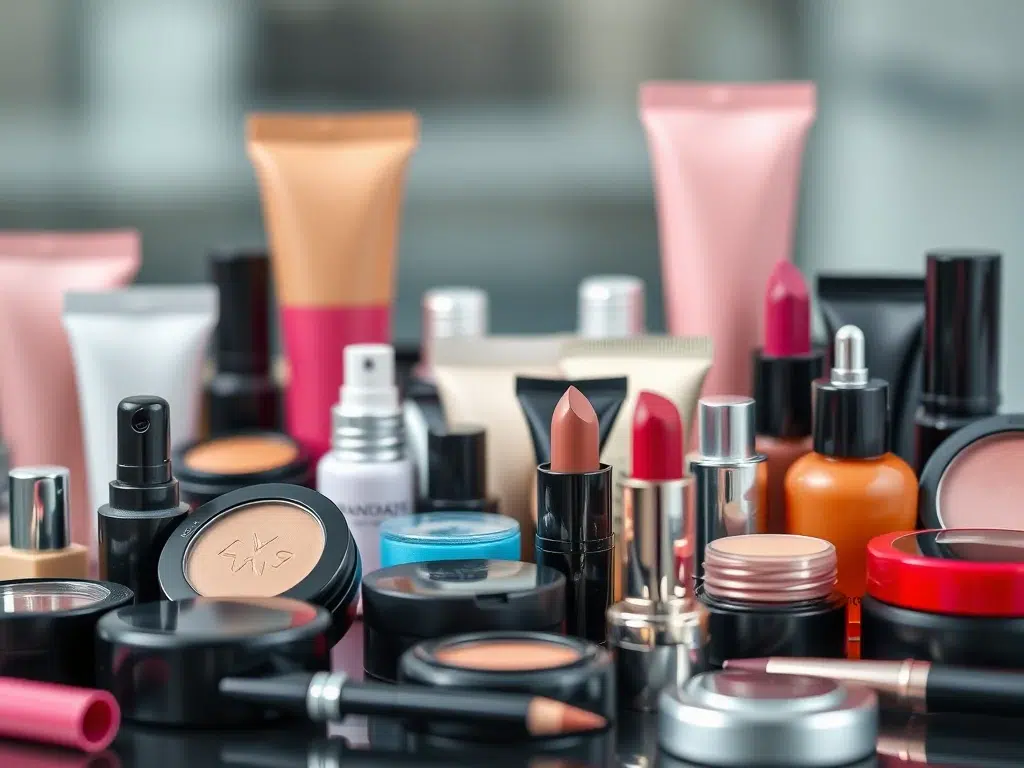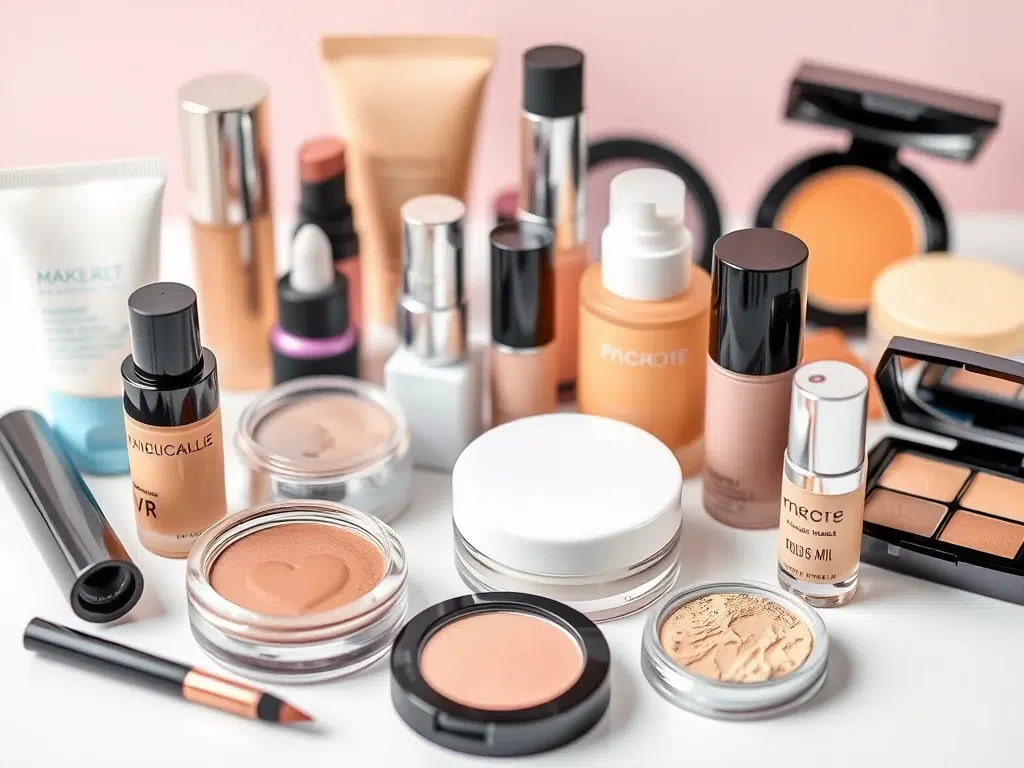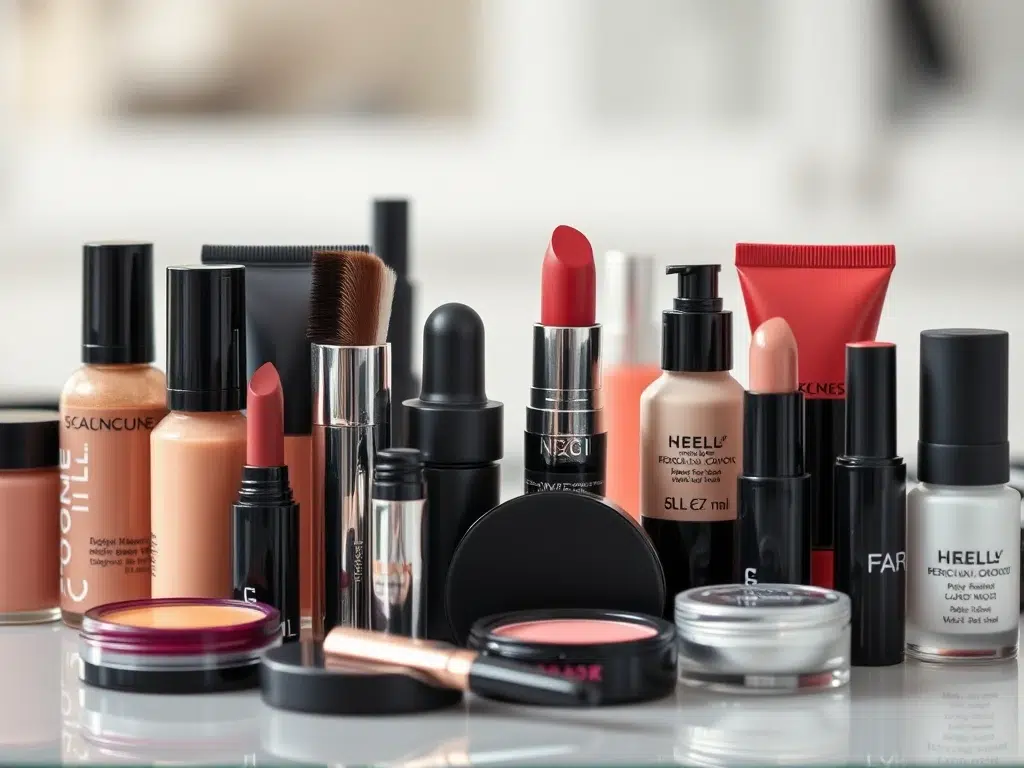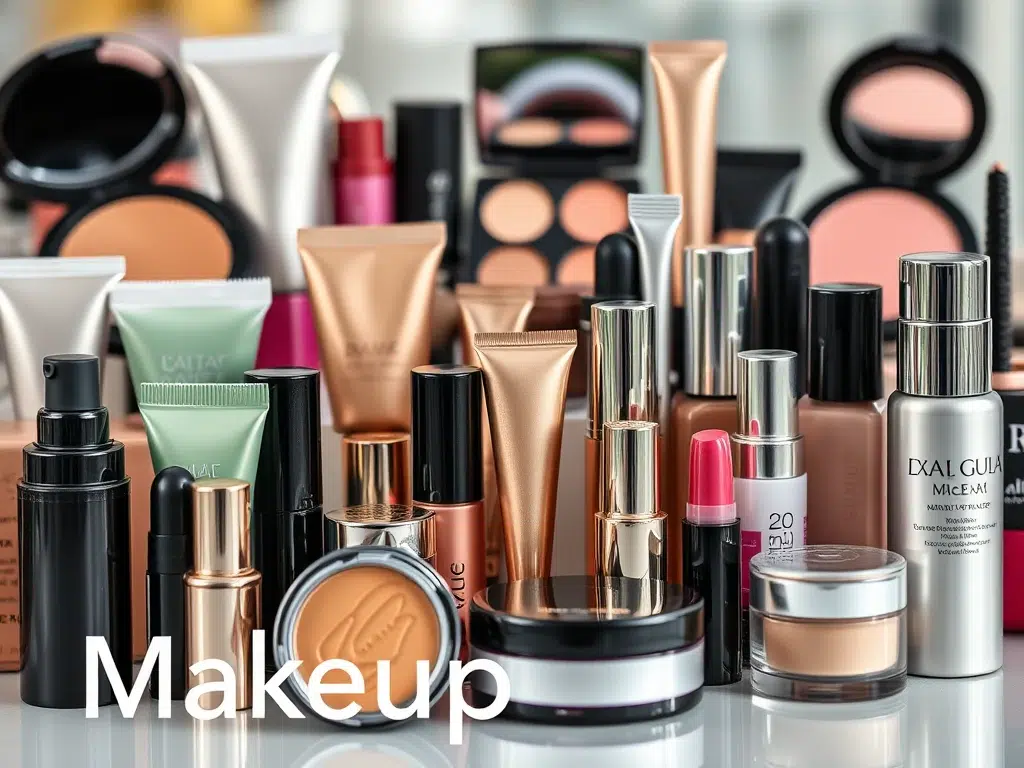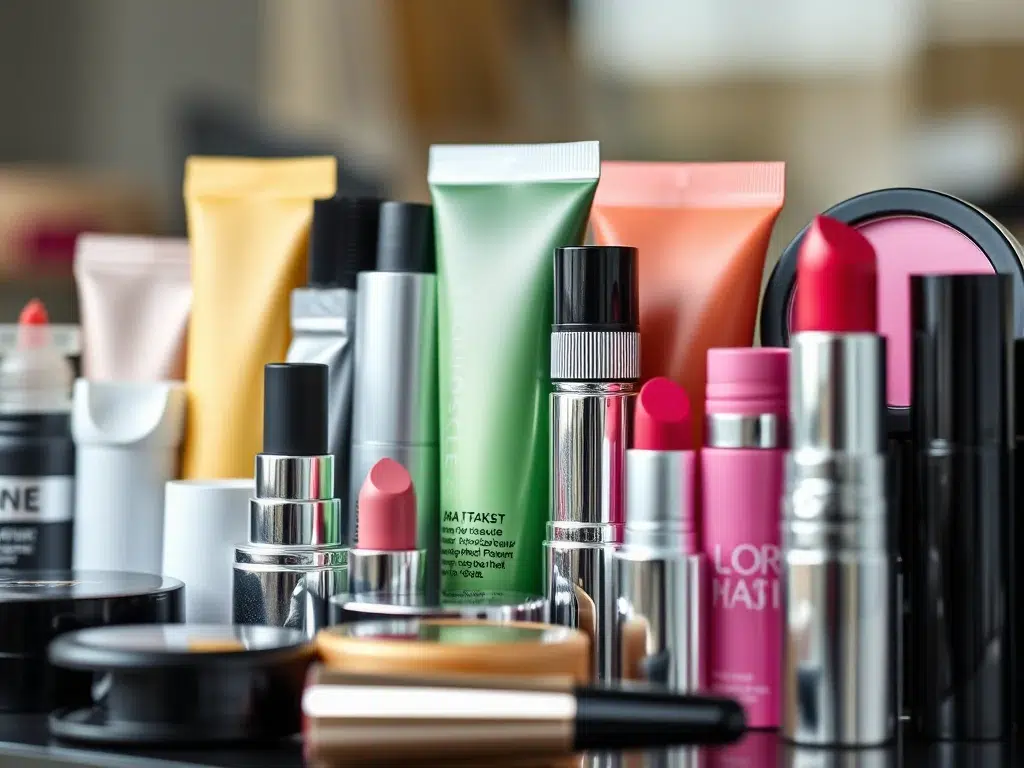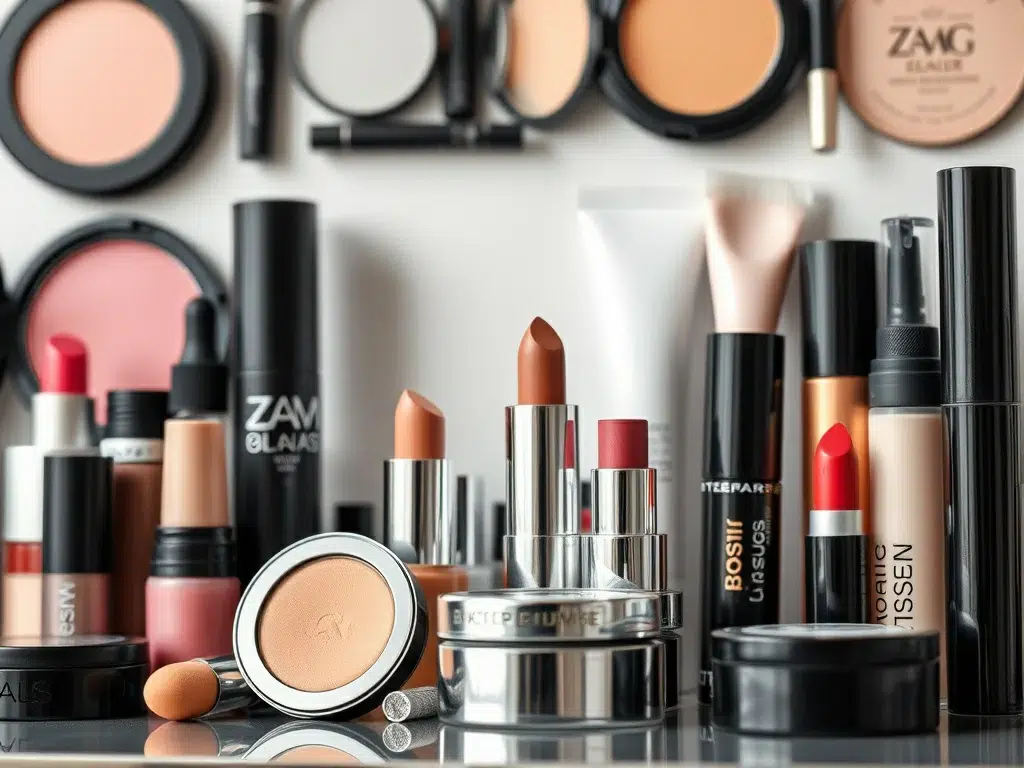The demand for private label cosmetics has surged in recent years, and as we move into 2024, the industry continues to evolve. With the beauty market becoming increasingly competitive, it’s essential for private label cosmetics manufacturers to stay ahead of emerging trends. This blog post highlights the key trends shaping the private label cosmetics industry in 2024 and how companies can leverage these shifts to meet consumer demand.
1. Sustainability and Eco-Friendly Products
Sustainability is one of the top priorities for private label cosmetics consumers in 2024. With growing awareness of environmental issues, many customers are now actively seeking cosmetics that align with their values. This includes both the cosmetics formulations themselves and the packaging they come in.
What’s Changing?
- Eco-Friendly Packaging: Consumers are increasingly opting for cosmetics that use recyclable, biodegradable, or refillable packaging. Materials like glass, bamboo, and recycled plastic are becoming popular choices in the private label cosmetics industry.
- Sustainable Ingredients: The demand for private label cosmetics made with organic, natural, and sustainably sourced ingredients is at an all-time high.
Private label cosmetics brands can meet this demand by focusing on sustainable practices. This includes using eco-friendly packaging and sourcing ingredients from suppliers who prioritize sustainability. By promoting these efforts in marketing materials, private label cosmetics brands can attract eco-conscious consumers.
2. Clean Beauty and Transparency
The clean beauty movement continues to influence consumer preferences in 2024. More people are looking for private label cosmetics that are free from harmful chemicals, with a growing emphasis on ingredient transparency. Consumers want to know exactly what is in the products they use, which has led to a rise in brands offering cleaner, safer alternatives.
What’s Changing?
- Ingredient Transparency: Private label cosmetics that clearly list ingredients and provide detailed information about sourcing and production are gaining popularity.
- Ethical Sourcing: Many consumers now expect brands to use ethically sourced ingredients, including cruelty-free and fair trade practices.
Private label cosmetics brands should prioritize transparency by providing clear ingredient lists and sourcing information. Using certifications like “cruelty-free,” “organic,” or “vegan” can also help brands gain consumer trust.
3. Personalization and Customization
Consumers are increasingly expecting private label cosmetics to be personalized to their specific needs. Whether it’s skincare products tailored to individual skin concerns or customized packaging, the trend for personalized beauty is expected to continue growing in 2024.
What’s Changing?
- Customizable Products: From personalized skincare formulas to makeup that matches specific preferences, there’s a growing demand for bespoke private label cosmetics.
- Personalized Packaging: Customers now expect brands to offer customization in packaging, which allows them to create a unique beauty experience.
Private label cosmetics manufacturers can capitalize on this trend by offering more personalized product options. Whether it’s offering customizable skincare regimens or unique packaging, private label cosmetics brands can increase customer loyalty by providing tailored products and experiences.
4. Innovative Formulations
As consumers look for products that do more than just the basics, the demand for innovative private label cosmetics formulations is growing. In 2024, customers are seeking multifunctional cosmetics that combine multiple benefits in a single product, such as skincare-makeup hybrids and cutting-edge ingredients.
What’s Changing?
- Hybrid Products: The demand for private label cosmetics that combine skincare benefits with makeup properties is skyrocketing. Products like tinted moisturizers that hydrate and provide sun protection are just one example.
- Trending Ingredients: Popular ingredients in private label cosmetics formulations include probiotics, CBD, and superfoods like matcha and turmeric, all known for their skin benefits.
To stay competitive, private label cosmetics brands should focus on innovative formulations that address multiple beauty needs at once. Incorporating trending ingredients can help brands stand out while delivering functional and high-quality products.
5. Digital and E-Commerce Focus
With more consumers shopping online than ever before, having a strong e-commerce presence is crucial for private label cosmetics brands in 2024. A well-designed website, a seamless online shopping experience, and effective digital marketing strategies are all essential to drive sales and build brand loyalty.
What’s Changing?
- Online Shopping Growth: The shift to e-commerce has made it more important than ever for private label cosmetics brands to offer a user-friendly, efficient online shopping experience.
- Influencer Marketing and Social Media: Social media platforms like Instagram, TikTok, and YouTube are powerful tools for promoting private label cosmetics, with influencers playing a key role in boosting brand visibility.
Investing in a strong e-commerce platform is essential for private label cosmetics brands looking to succeed in 2024. Utilize digital marketing techniques like SEO and paid social ads, and partner with beauty influencers to reach a wider audience. Offering virtual try-ons or skin consultations through AR and AI can also enhance the online shopping experience.
6. Inclusivity and Diversity
Inclusivity and diversity in beauty have become non-negotiable in 2024. Consumers are increasingly looking for private label cosmetics brands that cater to a wide range of skin tones, types, and identities. Brands that embrace diversity in their products and marketing are likely to succeed.
What’s Changing?
- Expanded Shade Ranges: Private label cosmetics brands are expanding their product lines to include a more diverse range of shades, especially in foundations, concealers, and lipsticks.
- Inclusive Marketing: Advertisements and product campaigns are now showcasing diverse models, representing different skin tones, body types, and gender identities.
To appeal to a broader consumer base, private label cosmetics manufacturers should offer products that cater to a wide range of skin tones and types. Brands should also ensure their marketing reflects the diversity of their customer base to foster a more inclusive brand identity.
7. Tech Integration in Beauty
Technology is shaping the future of private label cosmetics in 2024. From augmented reality (AR) try-ons to artificial intelligence (AI) for personalized product recommendations, tech innovations are transforming how consumers engage with beauty products.
What’s Changing?
- Virtual Try-Ons: AR technology is being used to enable virtual makeup try-ons, enhancing the shopping experience for consumers.
- AI Personalization: AI-driven recommendations based on individual preferences are becoming more common in private label cosmetics.
Integrating AR and AI into your private label cosmetics website or app can significantly improve the customer experience. Virtual try-ons, personalized product suggestions, and even AI-based skincare analysis tools can help customers make informed purchasing decisions.
Conclusion
As we look ahead to 2024, private label cosmetics brands have a unique opportunity to stay competitive by embracing these key trends. From sustainability and personalization to innovative formulations and the integration of technology, the cosmetics industry is evolving rapidly, and staying ahead of the curve will be crucial for success.
Private label cosmetics manufacturers can not only meet the changing demands of today’s consumers but also set themselves up for long-term growth. Which trend do you think will have the most impact on the industry? Share your thoughts with us in the comments below!

